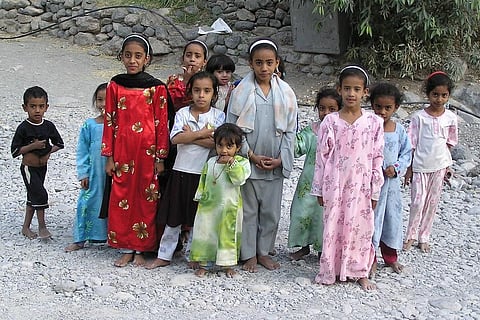How psychosocial support is highly neglected in humanitarian emergency response
The recent flash floods in Uttarakhand’s Chamoli district had a devastating impact on people’s life and livelihood. At least 68 died and as many as 136 went missing.
The state government initiated the process of declaring missing people as ‘presumed dead’. For Uttarakhand’s local population, whose homes and villages were swept away by rogue floodwaters, life has been irrevocably altered. Trapped in their homes without food and water, they have been stripped of their livelihoods too.
Children are the worst affected: The destruction caused by the floods has been distressing. Failure to address mental health and psychosocial issues after disasters stalls a child’s development. Children with mental health conditions suffer stigma, discrimination and human rights violations.
Disasters also put parents and caregivers under mental and psychosocial duress, which can prevent them from providing the protection, stability and nurturing care their children need during and after an emergency.
Psychosocial care for children should become a part of the minimum standards of humanitarian assistance delivered by state governments and civil society to the affected populations. Initiatives on psychosocial interventions should be integrated in every disaster response.
After the 2018 Kerala Floods, 10-year-old Anusha was not as cheerful as she used to be. The floods that shook her small house near Allepey, Kerala, affected her deeply. She became silent. Her fathers’ dependency on alcohol and the friction between her parents compounded her mental stress.
Thanks to the timely psychosocial counselling provided at her school by a non-profit, she came out from her from post-traumatic stress disorder.
All disasters are accompanied with suffering. Disaster survivors suffer in their own way, often silently. Immediately after a disaster, life-saving aid flows in.
While the government, volunteers and humanitarian agencies are adept at dealing with the physical needs, many a time they can miss invisible needs of disaster survivors such as mental health and psychosocial support, especially for children.
Disasters like Uttrakhand flash floods occurred in far-flung and low-resource areas. The affected families are still trying to cope with the aftermath. The state must guarantee last mile connectivity to ensure no one is left behind, especially those in needs for psychosocial support.
While it is the primary role of the state, the responsibility should be shared with local government, the private sector and other stakeholders, including civil society to provide the much-needed mental health services.
Governments should provide an enabling environment for development of capacities for provision of Mental Health and Psychosocial Support as an integral part of recovery initiatives in disaster-affected areas.
In order to support programs that promote and implement action to enhance psychosocial recovery, it is critical to allocate requisite funds to provide psychosocial support and mental health services for all people, including children.
The National Mental Health Programme (NMHP) is the Government of India’s sole centrally sponsored scheme for mental health. The programme, however, remains heavily underfunded. The Union budget allocation has been reducing every year.
Sustainable finance mechanisms are critical for strengthening psychosocial support for disaster survivors. Rs 40 crore for NMHP in the financial year 2021 is too small an amount to handle mental health impact and fallouts of the novel coronavirus disease (COVID-19) pandemic.
Adequate budgetary provisions and finance mechanisms will improve access to psychosocial care services and align us with the Sendai Framework for Disaster Risk Reduction 2015-2030 and Prime Minister’s 10-point agenda for disaster risk reduction.
Children’s voices go unheard many a time. They are unable to take forward their concerns to the government and policy makers. Access to psychosocial care during humanitarian emergencies is paramount and we cannot afford to compromise to this requirement.


